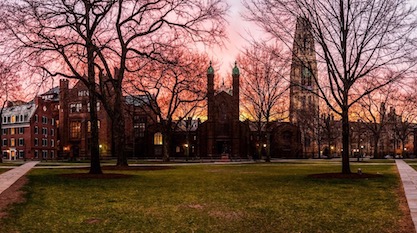 Free Speech
Free Speech
Lukianoff Optimistic About Academic Freedom, Gives Advice for Concerned Citizens


I always like hearing from experienced professionals about how they see their field and what might be the best ways to move forward in it in the future. So when Greg Lukianoff wrote about academic freedom, I was doubly interested.
Writing at National Review, Lukianoff, the CEO of the Foundation for Individual Rights in Education (FIRE), reflects on progress over the last 15 years or so. While FIRE does not deal with evolution per se, instead focusing on university free speech generally, their work strengthens free speech for all — including intelligent design proponents.
Not Everything, But Something
He is optimistic because, while there are many threats to free speech, people are now generally aware of the issue, and we’ve seen free speech declarations from prominent universities. It’s not everything, but it’s something.
Lukianoff gives recommendations for universities, noting:
What’s more, many campuses have still not taken basic, initial steps to protect free speech on campus, including:
…Pre-committing and recommitting to the protection of free speech and inquiry. It’s not enough to adopt a policy that protects free speech and academic freedom. University leaders should constantly look for ways to remind their communities of these values.
Defending student and faculty rights loudly and early. When there is a speech controversy on campus, college leaders should make clear that nobody will be punished for unpopular or controversial speech and that a failure to protect such speech would contradict their institution’s values.…
Collecting solid scholarly data on the problem. What is the state of free speech, dissent, and open inquiry on any given campus? Colleges should regularly survey students and faculty to find out.…
So, if you care about free speech on campus, rather than assuming all is lost, do something for me: Contact the president of your alma mater and your children’s alma maters, send them the above list of reforms, and ask when you can expect them to be implemented.
To me, someone who has been working in the area of academic freedom for the past four years, these suggestions all sound great! Lukianoff’s proposals would certainly help in protecting speech on evolution and intelligent design.
If implemented, would these ideas have succored those who faced discrimination in universities, including physicist Eric Hedin, biologist Scott Minnich, or biophysicist Dean Kenyon? Perhaps so!
Photo: Yale University campus, dusk, via Wikimedia Commons.
